Moving to Malaysia: A Guide for Expats to Live Here
I am proudly living in Malaysia, a country that embodies the essence of “Truly Asia.” It is a melting pot of diverse cultures and it … Read more
I am proudly living in Malaysia, a country that embodies the essence of “Truly Asia.” It is a melting pot of diverse cultures and it offers endless opportunities for people who want to live here.
I moved here many years ago, and now I would like to inform you about how to move here, how to find a job, and how to purchase a home.
Before we dive into the details, let me outline the three main sections as follows:
Checklist
Here, I’ll discuss what you need to address to tie up loose ends before moving. I will briefly talk about the cost of living and visa options as well as viable places to live in the country.
Moving
In this section, I’ll discuss the moving process, including booking flights, preparing necessary documents, and packing for your arrival in Malaysia. Finally, I’ll cover finding movers to assist you once you are there.
Settling in and Living in Malaysia
This part delves into the different aspects of living in Malaysia. I will outline the initial steps you need to take in adapting to life here and the cultural aspects you’ll encounter.
Timeline
In this final section, I talk about moving schedules and timelines, specifically how early you need to plan ahead before your move and how long it will take for your visa application to complete.
I’ll also share my personal experiences and provide links to various resources to help streamline your move to Malaysia.
Contents
Before moving to Malaysia, it’s crucial to consult a checklist covering the following aspects:
Since I did not own a house or a vehicle, there was not much holding me back before I moved. However, I did sell my furniture and other belongings that I did not plan to ship or bring to Malaysia.
If you are planning to live abroad long term, tying loose ends entails deciding whether you want to sell your house and/or car before moving.
If you don’t plan to sell, you have to figure out a way to maintain them while you are away.
In my case, I had to appoint a family member to have Power of Attorney (PoA) over any legal actions they needed to take on my behalf while I am abroad. If this is something you need to look into, you will have to hire a lawyer to write up the legal documents for you and the recipient of the PoA.
In Malaysia, the currency is ‘Malaysian Ringgit’ (MYR), and You’ll be pleased to know that the cost of living is relatively low here. In any case, you should still do your homework, which may include looking at options for a rental room or house to know how much you will need to spend on a major expense like rent.
Here is a breakdown of the cost of living for the average expat:
Accommodation: Renting a serviced apartment for a month can cost around MYR1,000–MYR1,500 (US$230–US$345). You can rent a room for much cheaper, however, if you are moving to a smaller place, particularly if you’re renting alone. A decent room for rent costs RM500–RM800 (US$115–US$184) per month. A renter usually has to pay a full month’s as a deposit to the owner.
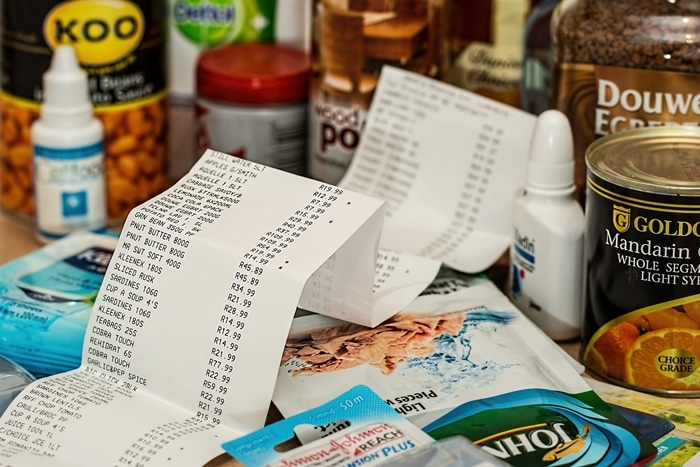
Food: If you are dining out every day, your monthly food expenses could easily add up to around MYR1,000 (US$230). It would cost a lot more if you order food delivery often. To cut costs, I suggest preparing your own meals. Buying groceries for one person would come up to only about MYR500 (US$115) per month. I did not spend much on alcoholic beverages because those are expensive here. A can of beer costs around MYR7 (US$1.60).
Furniture: I bought a refrigerator, a gas stove, a washing machine, a queen-sized bed, a sofa set, a dining table set, and a TV cabinet, light bulbs and ceiling fans for approximately MYR6,000 (US$1,380). They were locally made and/or were bought from non-European brands and stores.
Visa: I have a Long Term Social Visit Pass, so I had to pay a security bond* of MYR1,500 (US$345). This bond is paid only one time and can be refunded if you leave Malaysia permanently. However, to get a refund, you must keep the original receipt of your payment and show it to the immigration office to reclaim your security bond. This excludes application process fees.
* For security bond rates, check how much you have to pay from the list at the immigration website.
Expats are sometimes charged more for services and admission to tourist attractions, so be mindful of these additional costs. Unfortunately, some of these extra costs are unavoidable. For instance, certain places require presentation of a Malaysian identification card to qualify for the local price.
My advice would be to ask your Malaysian friends or colleagues about the prices of things before you pay. This will prevent you from being overcharged for certain purchases.
Check out this summary of the cost of living in Malaysia. It gives you an idea of how each item costs and how the cost of living compares to the world average.
Have a look at these to see what other sources think:
My wife and I keep expenses to a minimum although we live in Selangor — one of the most developed states in the country — as I am the main breadwinner while she does freelance work at home. Our entertainment consists of video games and watching television at home besides socializing with my in-laws during weekends.
However, there are a variety of entertainment venues around for those who prefer going out whether they live in urban or less developed areas. In urban cities, one can go shopping or watch movies at the many malls here.
There are also karaoke studios, archery and bowling places, the National Zoo, indoor fun exercise places and countless restaurants and bars where people like to hang out.
Those who are more active can go and do paintballing, enter escape rooms, or play sports like futsal, badminton, squash, etc. Gambling and casinos are not allowed anywhere in the country, with the exception of the esteemed Genting Highlands, where the Genting Casino rests at the top of the mountain in the state of Pahang.
For those who prefer nature-related activities, there are beautiful beaches, islands and forest reserves you can visit throughout the country. There are paddy fields in Kedah, caves in Perak, Sabah and Sarawak, and many more for those who love idyllic nature.
The main visas for expats are the Employment Pass (employer-arranged pass for workers), and the Long Term Social Visit Pass (for foreigners married to Malaysians). For detailed information about the different types of passes and visas, visit the immigration website.
Just like in other countries, the purpose of your visit in Malaysia will determine the type of visa you will need. The Single Entry Visa allows visitors to be in the country for three (3) months from the date of issue, but this may vary depending on your nationality.
Applying for visas for marriage, employment, business and education purposes is not daunting as long as you have done your research, prepared the proper documentation and submitted the application correctly to the relevant agency.
If you need help with getting a visa arranged, there are many agencies available out there that can help you with the documentation and application processes.
For those who want to make Malaysia their home away from home, check out Malaysia My Second Home program (MM2H) to learn how your dream of living here could be achieved. This visa is perfect for those who want to live in Malaysia as a retirement option or just as a long-term residence for a period of ten years.
Many expats who have worked and cherished their time here opt to continue living here on this program. Applicants must fulfill certain requirements to be eligible for approval.
As of 2024, the visa requirements for the MM2H program are categorized into three tiers: Silver, Gold, and Platinum.
| Category and Requirements | Silver | Gold | Platinum |
| Age | Main applicant must be at least 30 | ||
| Fixed Deposit | MYR500,000 (approx. US$125,000) | MYR2,000,000(approx. US$500,000) | MYR5,000,000(approx. 1,250,000) |
| MM2H Term | 5 Years (renewable) | 15 Years (renewable) | Qualified to seek permanent residency |
For a complete list of requirements, visit the MM2H page.
Applicants (and their spouse and children, if any) must submit a medical report from any private hospital in Malaysia. In case they get approved, they must maintain valid medical insurance coverage throughout their stay here.
This requirement may be waived for those who are not able to get coverage due to age or a preexisting medical condition.
Any applications and enquiries can be made through their website.
Expats mostly live in the urban states, primarily Kuala Lumpur and Selangor, mainly because these states offer abundant career opportunities for both locals and foreigners.
However, if you’re anything like me, you’ve likely already decided where you’ll live, especially if you have a job offer or are married to a Malaysian.
In my case, I received an offer to train while working as a Divemaster. Initially, I resided on Pulau Perhentian, a tourist island located in the state of Terengganu, before relocating to my in-laws’ residence in Selangor.
Life on the island was idyllic, but it was hard work too. Most of the locals were fishermen, boat captains, or resort employees.
However due to yearly monsoon seasons, people leave the island as resorts are typically closed during this time. My wife and I returned to the city after the tourist season ended in search of better job opportunities and income.
Kuala Lumpur, or KL, is the capital and largest city in the country. The upside to living here is the abundant job opportunities and entertainment options. It is also a well-connected city because the government has focused on the development of public transport and facilities here.
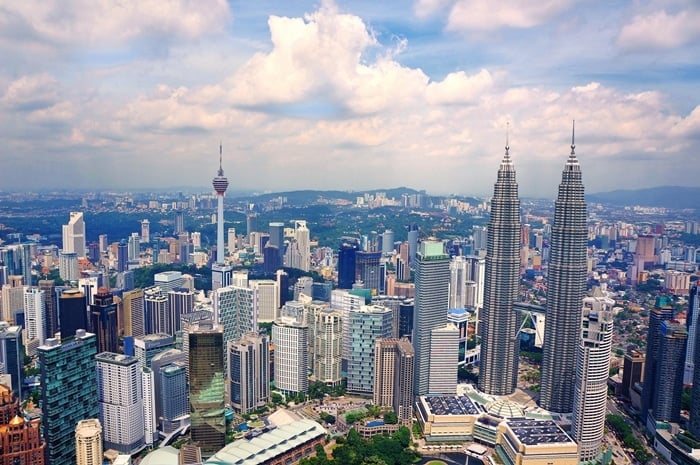
This city serves as a hub for international cuisine, boasts many malls, and hosts multinational companies, offering something for everyone.
However, the downside is that the cost of living is higher compared to other states. Additionally, weekdays see heavy congestion as most Malaysians drive to work, causing daily traffic jams. Flash floods are also a common occurrence during periods of heavy rain.
Selangor boasts excellent infrastructure, such as highways, and is the most developed state in Malaysia. With a large population of locals and expats, it offers abundant career opportunities, making it an ideal choice for those relocating for professional purposes.
Selangor is home to some of the most popular malls in Malaysia, including Sunway Pyramid, One Utama, IKEA, and Midvalley Megamall. During school holidays, Sunway Lagoon, i-City and KidZania turn into recreational spots buzzing with activity. So, for families with kids, Selangor is an ideal destination.
In addition to its modern amenities, Selangor offers rich cultural and heritage experiences at places like the Batu Caves, the National Museum, and the Selangor Museum. Nature enthusiasts can explore outdoor destinations such as Broga Hill or Morib beach.
The most famous island in Malaysia is definitely Penang. This is one of the top choices for foreigners and locals to settle down and retire in.
Penang is home to some of the country’s best cuisine, and there is plenty to do in places such as the Botanical Garden, Penang Hill, and the beaches.
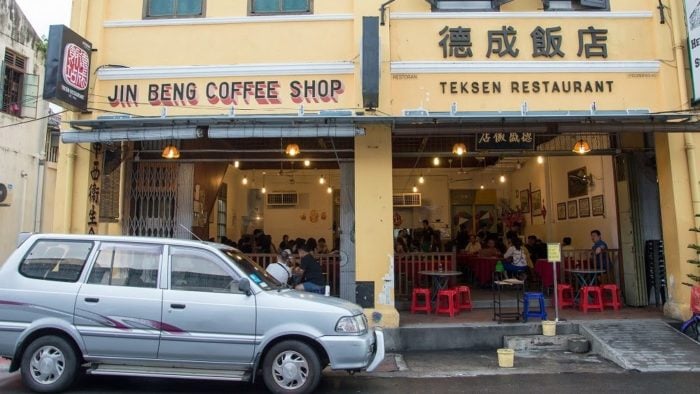
If you’re considering retiring in Penang, you can join this group to find out more about living in Penang and the experiences of expats living on this island state.
Let’s now look into the process of moving to Malaysia.
There are no direct flights from the USA to Malaysia, so I had to make a stopover for a transit flight to Malaysia. The best way to book a flight to Malaysia is by getting help from a tour agency, which I did.
One can also look for the most affordable flights to Malaysia using websites like Skyscanner. The main point of entry would be Kuala Lumpur International Airport (KLIA).
I also looked into ticket options directly from airlines that operate the USA to Malaysia route and vice versa. Some of the most affordable ones are China Eastern, Korean Air, Qatar Airways, and AirAsia X.
AirAsia is a low-cost airline offering both domestic and international flights to and from Malaysia, as well as within the country itself. For domestic flights, you can choose from any of these options.
Once you are in Malaysia, you can travel to other places using public transport. You can also book a ride via ride-hailing services, such as Grab and MyCar apps if you are traveling short distances to your accommodation or office.
The most important thing you must prepare before entering a foreign country is your personal documents for emigration purposes.
If you want to be extra cautious, phone the embassy or consulate to ask any questions you have.
A lot of paperwork is needed for the various applications I needed to make in Malaysia. As a spouse to a Malaysian, these are the documents I had to prepare:
Note: If you are married to a Malaysian citizen and have kids, you will need to prepare photocopies of the children’s birth certificates.
For expats who require an Employment Pass, these are the documents that must be provided:
As an expat working in Malaysia, you can bring your spouse and your children over to Malaysia. They will need to apply for their Long Term Social Visit Pass. These are the documents they need:
As all of my personal documents were in Portuguese, I needed to have them translated into English and verified at the Brazilian embassy in Malaysia. All of the copies will then be either stamped or verified by the officers working in the immigration department in Malaysia.
Make sure to have the original documents readily available for inspection.
Having all these prepared beforehand will save you a lot of time, especially considering that the immigration offices are typically always crowded. If you are working or have limited access to transportation, you may find it cumbersome to take time off just to initiate your application process, which could also prolong the approval wait time.
Since I had already sold most of my bulky belongings prior to moving to Malaysia, I brought only my clothes and some keepsakes in my check-in luggage. Besides that, I brought Brazilian coffee and chocolate into Malaysia.
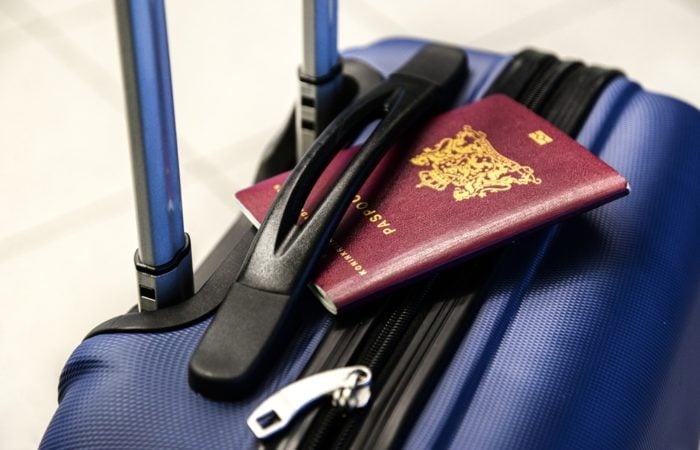
Most of the things you’ll need such as various food and household items can be found in Malaysia. However, you should be aware of things you cannot bring into Malaysia, including indecent or pornographic materials, weapons, and certain perishable goods.
Any cloth bearing the verses of the Quran, sharp items resembling syringes, and poisonous chemicals cannot be brought into the country. Note that illicit drugs, including but not restricted to morphine, heroine, candu, marijuana, etc., are strictly prohibited.
Drug trafficking is punishable by death by hanging. You can check the Malaysian Customs website for a list of items that are prohibited from being imported and exported.
You can easily hire a mover by searching online. If you need help finding international movers, fill out the form on this page.
Alternatively, in case you have friends or family in Malaysia, they might be able to recommend you people to contact for hiring a small truck (or also known as a lorry) to move your possessions to your new home.
I was fortunate because my in-laws had a van and they were kind enough to help me with packing and moving. In other cases, I had colleagues who had pickups and were willing to move my things if needed.
You can check out our article on the shipping to Malaysia.
In this section, I will talk about finding a place to live, working and running errands, culture, education for your kids, travel, and entertainment in Malaysia.
Three main websites that people use to look for rooms and houses to let or for sale are iProperty, PropertyGuru, Mudah and iBilik. These sites allow you to search by location, which is helpful as this feature lets you find a place near your future office as well as by price. This lets you determine how much you want to spend on rental or housing loan installment.
Take note that property in Kuala Lumpur and other urban areas are generally more expensive than in other areas in Malaysia.
In most cases, you will need to sign a rental agreement that is at least for a two-year period. If you are unsure of your ability to stay the full two years, it is highly advisable for you to discuss and include a termination clause in the contract. Renters normally have to pay two months’ rent as a security deposit to secure the rental.
Tenants have to pay their own utility bills such as water, electricity, phone and internet services. Of course, if you are looking to stay for only a short while, the most trustworthy option is Airbnb. You can rent these places for a few days or for as long as you need, hassle-free.
Most of the places listed here also already include the basic utilities which are included in the fees.
Foreigners who want to own a house here can only buy a property that is MYR1 million (US$ 229,489) and above. Here’s more information about buying a property in Malaysia as a foreigner.
In section 1.3 Visas, I discuss the MM2H program, which enables foreigners to reside here for an extended period under a 10-year visa. This program also allows foreign retirees here to purchase homes at a lower price.
The table below shows the minimum property values that foreigners can buy under the MM2H program. (Data as of February 2024)
| State | Minimum Price of Property With MM2H |
| Selangor | MYR2 million(for Zone 1: Districts of Petaling, Gombak, Hulu Langat, Sepang and Klang & Zone 2: Districts of Kuala Selangor & Kuala Langat) MYR1 million(for Zone 3: Districts of Hulu Selangor and Sabak Bernam) |
| Terengganu, Pahang, WPKL, Putrajaya, Johor, Perlisand Negeri Sembilan | MYR1 million |
| Kelantan, Penang and Sabah | MYR1 million |
| Perak | MYR1 million |
| Kedah | MYR1 million |
| Sarawak | MYR600,000 (Kuching); MYR500,000 (Other areas) |
| Malacca | MYR1 million (landed title)MYR500,000 (strata title) |
Rentals and property purchases are usually done with the help of agents. The websites mentioned above will have the contact details of the agents in charge of the properties listed. These agents are always more than willing to guide you through the process.
You will need to secure a job offer before coming to Malaysia if you are planning to move here with an Employment Pass. Your pass application process is handled by the company that’s hiring you.
Upon approval, the renewal of your employment contract and visa will be upon the discretion of your employer.
It is risky to come here on a Single Entry Visa (tourist visa) and then look for a job.
If you are married to a Malaysian, however, you can start applying for jobs upon your arrival in Malaysia on your Long Term Social Visit Pass. The most popular sites you can use to look and apply for jobs are Jobstreet, Monster, Indeed and LinkedIn.
You can even “swipe right” on your dream job using the WOBB app on your phone. Once you have secured a job offer letter, you will then have to apply for a job permit at the immigration department with copies of the following documents:
Read more: An Expat’s Guide to Finding Work in Malaysia
Foreigners who have been working for more than 182 days in Malaysia will be taxed based on the Malaysian income tax laws and rates that are applicable to Malaysians. The table below shows the tax rate for the year of assessment 2023.
| Chargeable Income (MYR) | Calculations (MYR) | Rate (%) | Tax (MYR) |
| 0–5,000 | On the first 2,500 | 0 | 0 |
| 5,001–20,000 | On the first 5,000—Next 15,000 | 1 | 0—150 |
| 20,001–35,000 | On the first 20,000—Next 15,000 | 3 | 150—450 |
| 35,001–50,000 | On the first 35,000—Next 15,000 | 8 | 600—900 |
| 50,001–70,000 | On the first 50,000—Next 20,000 | 11 | 1,500—2,200 |
| 70,001–100,000 | On the first 70,000—Next 30,000 | 19 | 3,700—5,700 |
| 100,001–250,000 | On the first 100,000—Next 300,000 | 25 | 9,400—75,000 |
| 250,001–400,000 | On the first 400,000—Next 200,000 | 24.5 | 46,900—36,700 |
| 400,001–600,000 | On the first 400,000—Next 200,000 | 25 | 84,400—52,000 |
| 600,001–2,000,000 | On the first 600,000—Next 1,400,000 | 28 | 136,400—392,000 |
| More than 2,000,000 | On the first 2,000,000—Next ringgit | 30 | 528,400 |
For foreigners who stay in Malaysia for less than 182 days but are employed for at least 60 days in a calendar year, they are taxed a flat rate based on their types of income.
| Type of Income | Rate (%) |
| Business, trade or professionEmploymentDividendsRents | 28 (from year of assessment 2016) 30 (from year of assessment 2020) |
| Public EntertainerInterest | 15 |
| Royalty Payments for services in connectionwith the use of property or installation,operation of any plant or machinery purchased from a non-resident Payments for technical advice,assistance or services rendered in connectionwith technical management or administration ofany scientific, industrial or commercial undertaking, venture, project or scheme Rent or other payments for the use of any movable property | 10 |
When I started working, my employer automatically applied for an account with the Inland Revenue Board of Malaysia (IRB). All I had to do was go to the tax office to verify that my details were true and sign the paperwork to be a confirmed tax payer.
Tax owed to the government is automatically deducted from my monthly salary.
Every year, the company that employs you will provide the EA form that contains the details of your salary, tax and other deductions. Keep this document safely; you will need it to file your income tax.
We file our income tax annually by the end of April.
One can get help filing their income tax by going to the nearest tax office. However, I find it extremely convenient just to do it online. Employees who do not have any business income only need to fill up the BE form to file their taxes.
After filing it, and if the IRB finds that you have paid the tax in excess, they will refund the excess money to you via bank transfer. Mind you, the refund process for foreigners is different from citizens. If there is a refund, the IRB will request that you send them a few documents.
These include a form that you have to fill in the dates that you entered and left the country, the latest EA form, a letter your employer has to write, sign and stamp stating that the tax is borne by the employee, and an indemnity letter your employer has to, again, write, sign and stamp.
The last two letters have to follow a template that the IRB sends to you. You will also need to provide your bank account to the IRB for the refund.
If you are married to a Malaysian, your kids will be allowed to attend the public schools here. Children here begin their education at the age of four in preschool. When they are seven years old, they begin their first year of the mandatory six-year primary education.

They study from Years or Standards one to six in primary school, and then Forms one to five in secondary school. Education for the 11 years in public schools is free of charge as it is funded by the government.
However, parents with more disposable income choose to enroll their children in private schools more and more these days.
Expats normally enroll their children in private and international schools. Tuition fees for these schools are a lot more costly than public schools, but it is almost impossible for expat kids to enter the public school system. Education in private schools is three terms per year and uses English as the primary medium of communication and instruction.
Expats who want their children to study using the curriculum of their home country or any syllabus other than the one in Malaysia should consider an international school. Most of these schools are located in Kuala Lumpur.
Children enrolled in private or international schools settle down quickly as they do not experience a major culture shock that they might have in public schools.
To help you in selecting an international school by location in Malaysia, visit this list of featured international schools. If you prefer private schools, have a look at this list of featured private schools.
Opening a bank account is a strict affair in Malaysia, even for locals. However, the first personal account I opened was with a local bank called Allianz Bank. Although I did not have a job yet, I was able to open an account and even apply for a credit card, which was approved, once I made a fixed deposit in the bank.
It would be much easier to open a bank account if you have a job here as most banks would ask for proof of employment for your banking application. These are some of the documents you need when you open a bank account:
One obstacle to note about banking in Malaysia is that certain actions that you need to do in the bank, you sometimes have to go back to the bank branch where you opened your account.
To illustrate, I had opened an account in Klang. I moved further away from that particular bank, but when I wanted to update certain details for that account, I had to go all the way back to Klang to do it, instead of being able to update my details at any bank branch close to me.
Here is an article by B2BPAY on how to open a bank account and here is a list of local and international banks in Malaysia.
Once you have a bank account, you can now send money from your home bank account to Malaysia and apply for a credit card here.
Once you’ve secured a rented or owned property, you have to open accounts with the water, electricity, and sewerage offices. You can only register to have the accounts under your name once the previous bills (accumulated by the former tenant or owner) have been fully paid.
Thus, it is important to check with your landlord or the house seller about the status of the bill payments before you sign your rental or house purchase agreement.
Electricity is provided by Tenaga Malaysia, water by Air Selangor (suppliers differ by state) and sewerage by Indah Water. To open accounts, I went to their offices with all the necessary documents in hand.
There are three main Internet service providers (ISP) in Malaysia. They offer a range of packages that cater to your bandwidth needs and budget. The ISPs are Maxis broadband, Time broadband and Telekom which offers Unifi fibre broadband.
You can choose from different mobile phone providers and a wide array of mobile data packages for your smartphone. Different plan options incur different fees and charges, so evaluate your needs and select a plan carefully.
The main telecom providers are Digi, Maxis, Celcom and U-Mobile. You can choose either a postpaid plan (fixed monthly billing) or a prepaid plan (top up your data as needed). When you sign up for some of these plans, you may even get an option to receive a new phone at a minimal cost while you continue paying for your mobile bill under the current plan. I’d say it’s a win-win situation.
If you wish to watch shows and/or movies available to stream only from your home country, you might need to apply for a VPN. Or, you can subscribe to Netflix.
Once those are all settled, you will start receiving your bills by post or inbox. Paying bills is easy as it can be done online or by using a credit card.
Foreigners can get healthcare at either the government or private clinics and hospitals. Private hospitals charge a lot more than government hospitals. In any case, it is advisable to buy health insurance especially if you’re unemployed and therefore not under an employer-sponsored insurance plan.
Note that most employers in Malaysia typically provide a health card and health insurance after you’ve worked for a certain period in the same company. Large companies provide insurance coverage not just for the employee but also the employee’s spouse and children.
If, for any reason, you do not have insurance and therefore cannot afford to go to a private hospital, you can opt to go to a government clinic or hospital. I had one experience going to a government-run hospital when I contracted Dengue fever; I sought treatment at the Klinik Kesihatan closest to my residence.
Although I consulted and had blood tests at a clinic several times and once at the government hospital, I paid only around MYR100 (US$23) in total.
My experience visiting a private clinic has been quick and efficient. Each consultation, including medication for common illnesses like fever, would cost at least MYR50 (US$11) and at most around MYR100 (US$23).
Of course, it would cost more to get treated for more complicated illnesses.
Dental care is expensive if you get it from a private clinic. Most companies’ health insurance do not cover the expenses for dental work. Be prepared to fork out a few hundred ringgit for a wisdom tooth extraction, or wait for your turn at the government hospital if you would like to pay a lot less!
If you would like to buy your own insurance, there is a wide variety of insurance agencies that can help you. Agents would be more than happy to visit you at home or the office to explain to you the packages they offer based on your budget and specific needs.
Read our detailed guide for a thorough overview of health insurance in Malaysia.
There is a HUGE variety of food here, and food seems to be a particularly favorite topic among Malaysians. Locals bond over food and they talk about it all the time. Malaysians are, in fact, proud of their food, which is a mixture of Malay, Indian, Chinese, east Malaysian, foreign, and fusion cuisines.
You’ll be happy to know that food is affordable here and many eating places are open 24 hours a day.
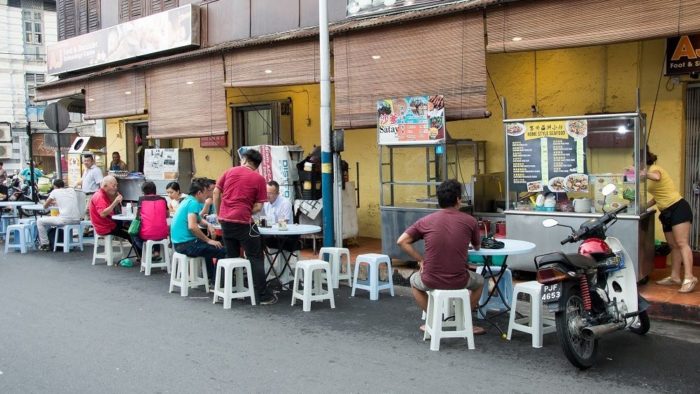
My favorite local street food is Ramly burger. You can see these stalls everywhere. Their burger ayam special (chicken patty burger with egg) costs only MYR6 (US$1.25).
To locate a Ramly stall near you, search it on Google Map. My other favorite is pan mee, a flat noodle dish topped with minced pork, black fungus, fried anchovies, and spring onions. It comes with a bowl of soup filled with leafy vegetables and fried bean curd skin. It costs MYR6 (US$1.40) in most coffee shops.
That said, don’t miss out on local delights when you are herein Malaysia. If you want to get the most authentic and reasonably priced dishes, avoid places that cater to tourists. Ask the locals for tips on where to find good food joints.
Be prepared for a major culture shock when it comes to languages spoken in Malaysia. When people speak Chinese, they are actually speaking different dialects (i.e., Mandarin, Cantonese, Hakka, Hokkien, etc.) instead of just one. Ditto Indians, who speak different dialects (i.e., Tamil, Hindi, etc.) as well.
People speak in different accents and use word substitutes depending on the region they come from.
The national language of the country is Malay, which is widely used in government agencies. This is why it pays to ask a friend or colleague to help you when you visit these places and need to fill up forms that are only in Malay.
Personally, I feel that Malay is easy to learn, and knowing how to speak it will ease a lot of personal and professional interactions. However, many people, especially those living in urban areas in Malaysia, speak English well, and foreigners will find it easy to obtain information in English.
Islam is the predominant religion in Malaysia, but there is also a diverse array of religious practices, including Christianity, Hinduism, Buddhism, and others, all freely observed. You must be sensitive when discussing matters of race and religion.
Malaysians do not wear shoes inside their house, so please remember to remove yours before you step inside a Malaysian friend’s home. The same may apply in some offices and shops as well.
There are many religious and cultural festivals here. Public holidays for these festivals are spread throughout the year to allow people to celebrate or go back to their hometowns (balik kampung). Observing these festivals is one of the highlights of living in Malaysia.
You may experience being invited to locals’ homes to celebrate with them, which may include eating dishes specially made for specific festivals.
If you behave respectfully, are polite, and make an effort to learn the local culture, you will find that making friends can be easy, as many locals tend to be friendly and welcoming to foreigners who behave well. I should note here that learning the national language can go a long way when socializing with locals — it is fairly easy to learn to pick up certain Malay words besides. Socializing here typically happens with food involved. You can forge friendships over meals or by hanging out at the mamak (Indian-Muslim restaurants).
I have made friends mainly at the workplace, so my circle of friends consists of current and former colleagues.
Here, I will provide a rough estimate of the time required for some processes.
The amount of time to sort one’s pre-move affairs varies from person to person. In my case, I took about a month to inform my family about my decision to move, gather all the visa-related information I needed, apply for a passport, buy the flight tickets, and tie up loose ends.
I applied for my pass within my first month of stay in Malaysia. All in all, it took about a week to get my documents stamped, application submitted, and approval and passport returned to me with the valid pass. Read this guide for a detailed description of the process.
If you are applying for an Employment Pass, please check with your potential employer regarding how long it might take.
I hope the information above can enlighten you and ease your worries about your move to Malaysia.
Be assured that once you arrive here, everything will be smooth sailing and the efforts you put in will be well worth it.
Here are some of the most important guides you must read when moving to Malaysia:
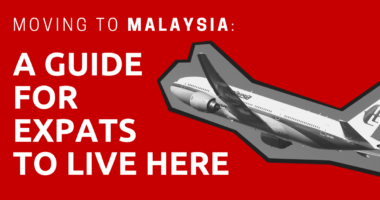 Moving to Malaysia: A Guide for Expats to Live Here 2024-04-28 I am proudly living in Malaysia, a country that embodies the essence of “Truly Asia.” It is a melting pot… ... Read more
Moving to Malaysia: A Guide for Expats to Live Here 2024-04-28 I am proudly living in Malaysia, a country that embodies the essence of “Truly Asia.” It is a melting pot… ... Read more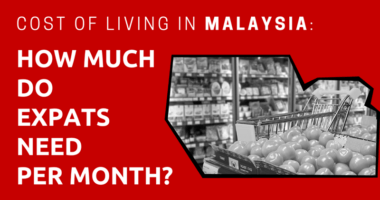 Cost of Living in Malaysia: How Much Do Expats Need Per Month? 2024-03-31 What you can expect to pay each month in one of Southeast Asia's best kept secrets. ... Read more
Cost of Living in Malaysia: How Much Do Expats Need Per Month? 2024-03-31 What you can expect to pay each month in one of Southeast Asia's best kept secrets. ... Read more Health Insurance in Malaysia for Expats: What You Need to Know in 2024 2024-01-11 Need health insurance in Malaysia? These insurance companies may be what you’re looking for. Find out how to get the… ... Read more
Health Insurance in Malaysia for Expats: What You Need to Know in 2024 2024-01-11 Need health insurance in Malaysia? These insurance companies may be what you’re looking for. Find out how to get the… ... Read more A Guide to the Cheapest Way to Send Money to Malaysia 2021-09-22 Malaysia has a closed currency market. This means you can't purchase the local currency Ringgit Malaysia (MYR), outside of Malaysia… ... Read more
A Guide to the Cheapest Way to Send Money to Malaysia 2021-09-22 Malaysia has a closed currency market. This means you can't purchase the local currency Ringgit Malaysia (MYR), outside of Malaysia… ... Read more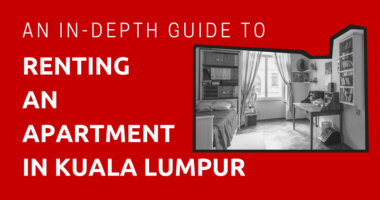 An In-Depth Guide to Renting an Apartment in Kuala Lumpur 2023-09-24 If you are an expat who is looking to move to Malaysia soon, one of the first things that you… ... Read more
An In-Depth Guide to Renting an Apartment in Kuala Lumpur 2023-09-24 If you are an expat who is looking to move to Malaysia soon, one of the first things that you… ... Read more Credit Cards in Malaysia for Foreigner: An Ultimate Guide 2023-09-19 If you are an expatriate in Malaysia and are just setting up your home and life here, one of the… ... Read more
Credit Cards in Malaysia for Foreigner: An Ultimate Guide 2023-09-19 If you are an expatriate in Malaysia and are just setting up your home and life here, one of the… ... Read more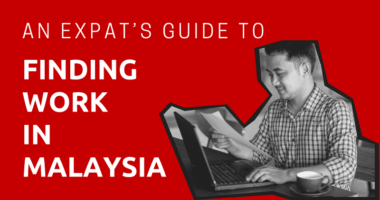 An Expat’s Guide to Finding Work in Malaysia 2023-09-24 One of the most important things to do when moving to Malaysia is securing employment for yourself. Here are two… ... Read more
An Expat’s Guide to Finding Work in Malaysia 2023-09-24 One of the most important things to do when moving to Malaysia is securing employment for yourself. Here are two… ... Read more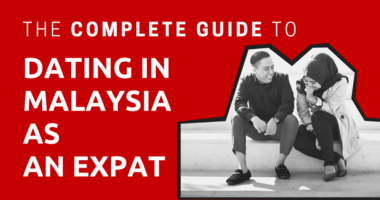 The Complete Guide to Dating in Malaysia as an Expat 2021-12-21 From meeting people to picking a place to go, this guide reveals everything about the once taboo subject. ... Read more
The Complete Guide to Dating in Malaysia as an Expat 2021-12-21 From meeting people to picking a place to go, this guide reveals everything about the once taboo subject. ... Read more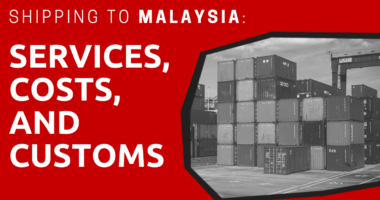 Shipping to Malaysia: Services, Costs, and Customs 2023-09-21 “Is it safe to ship my belongings to Malaysia?” “Will my items safely arrive?” “Which shipping company should I use?”… ... Read more
Shipping to Malaysia: Services, Costs, and Customs 2023-09-21 “Is it safe to ship my belongings to Malaysia?” “Will my items safely arrive?” “Which shipping company should I use?”… ... Read moreFind common topics that will help you overcome the challenges of living, working, retiring, and starting businesses in Malaysia.
I am proudly living in Malaysia, a country that embodies the essence of “Truly Asia.” It is a melting pot of diverse cultures and it … Read more
Once you’ve made the decision to explore career opportunities in Malaysia, it’s important to familiarize yourself with the process of securing employment in this vibrant … Read more
What you can expect to pay each month in one of Southeast Asia’s best kept secrets.
Need health insurance in Malaysia? These insurance companies may be what you’re looking for. Find out how to get the best health insurance for your needs.
After the pandemic, buying groceries online and having them delivered to our home is becoming increasingly common. More and more people who never used to … Read more
Car insurance may be optional in many countries, but not in Malaysia. Road users must get insurance before driving or riding a bike in the … Read more
If you are an expat who is looking to move to Malaysia soon, one of the first things that you will inevitably think about is … Read more
One of the most important things to do when moving to Malaysia is securing employment for yourself. Here are two things you need to think … Read more
“Is it safe to ship my belongings to Malaysia?” “Will my items safely arrive?” “Which shipping company should I use?” There are many questions you … Read more
If you have just moved to or are thinking about moving to Malaysia, one of the first things that you need to look into is … Read more
If you are an expatriate in Malaysia and are just setting up your home and life here, one of the first things that you are … Read more
If you are thinking of moving to Malaysia or are already in Malaysia with your family then one of the most useful things you can … Read more